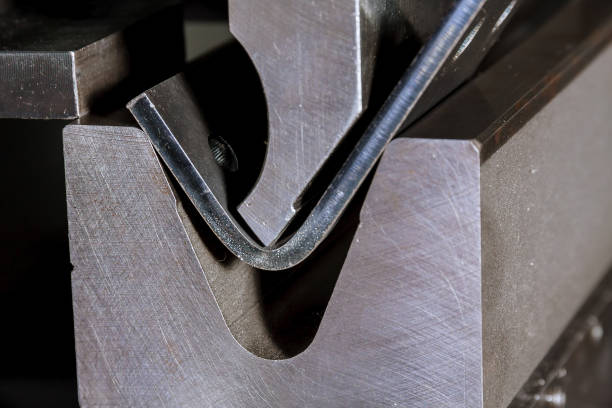The world of medical devices and equipment has been significantly transformed by advancements in CNC machining. From creating precise surgical instruments to crafting intricate implantable devices, CNC machining is at the heart of the medical industry’s push towards better, more reliable healthcare solutions. But what exactly is CNC medical machining, and how does it fit into the healthcare sector? This comprehensive guide will break down what CNC medical machining is, how it works, and why it’s so important for medical applications. Let’s dive in!
Introduction to CNC Medical Machining
CNC Medical Machining refers to the use of Computer Numerical Control (CNC) machines to produce medical components, instruments, and devices with high precision. These machines operate using G-code, a programming language that directs the machine’s movements and operations to cut, mold, or shape materials.
Why is CNC Machining Crucial for Medical Devices?
The medical field requires extremely high standards of accuracy, repeatability, and reliability to ensure patient safety and effectiveness. CNC machining offers these qualities by enabling manufacturers to produce complex shapes and intricate designs consistently. Some of the key benefits include:
- Precision: The accuracy needed for medical implants and surgical tools is achieved with CNC machines, which can operate with tolerances as small as 0.001mm.
- Versatility: CNC machines can handle a wide range of materials such as stainless steel, titanium, and biocompatible polymers, essential for medical devices.
- Cost Efficiency: CNC machining can reduce overall production costs due to minimal waste and efficient processing.
The use of reliable spindle motors, such as the 60000RPM 300W ER8 Water-Cooled Spindle, ensures precision and efficiency in medical CNC machining. 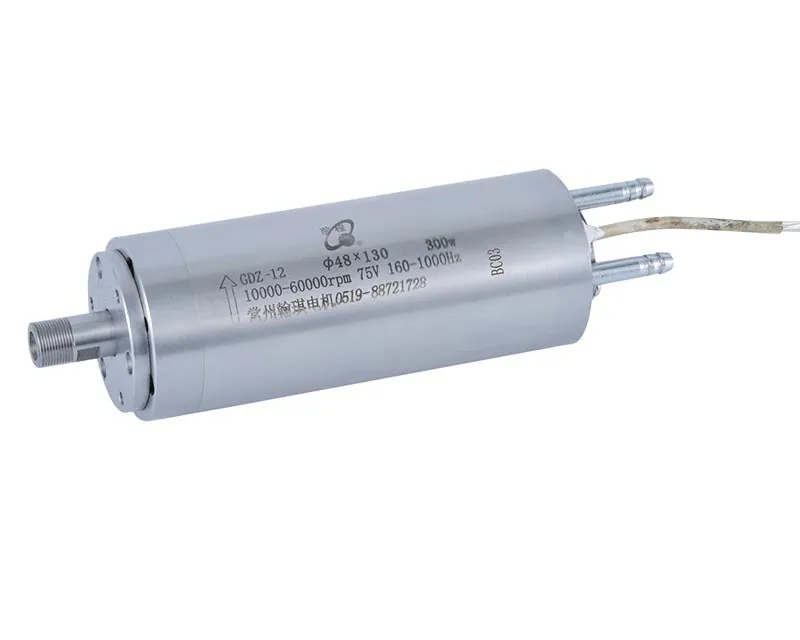
Applications of CNC Machining in the Medical Industry
The healthcare industry benefits from CNC machining in numerous ways. From the production of life-saving devices to precision surgical tools, CNC plays a crucial role.
Surgical Instruments
Surgical tools must be crafted with the utmost precision to ensure that procedures are performed safely. CNC machining is responsible for manufacturing these high-quality instruments, including scalpels, forceps, and clamps.
- Precision and Quality: CNC machines allow the manufacturing of surgical tools with extremely sharp edges and exact dimensions.
- Customizability: CNC machining enables customization based on individual surgeon requirements or patient needs, improving surgical outcomes.
Implants and Prosthetics
Medical implants such as hip joints, spinal implants, and dental screws are produced using CNC machining to meet rigorous medical standards.
- Biocompatible Materials: Materials such as titanium are often used for implants due to their strength and biocompatibility. CNC machining is capable of handling such materials, ensuring the parts are safe for long-term use.
- Patient-Specific Implants: CNC machining can create custom implants tailored to a patient’s unique anatomy, enhancing fit and performance.
Medical Device Components
The complexity of modern medical devices often requires the production of intricate parts. CNC machining is used to manufacture these components with high accuracy.
- Precision Molding: Many devices contain tiny components that must fit perfectly. CNC machining ensures that these parts are manufactured without defects.
- Consistent Production: CNC machines can replicate components with consistent quality, which is essential for reliability in medical devices.
For high precision in producing parts like these, it’s crucial to use a robust spindle motor, such as the 24000RPM 3.2KW ER20 Water-Cooled Spindle, which supports intricate machining needs. 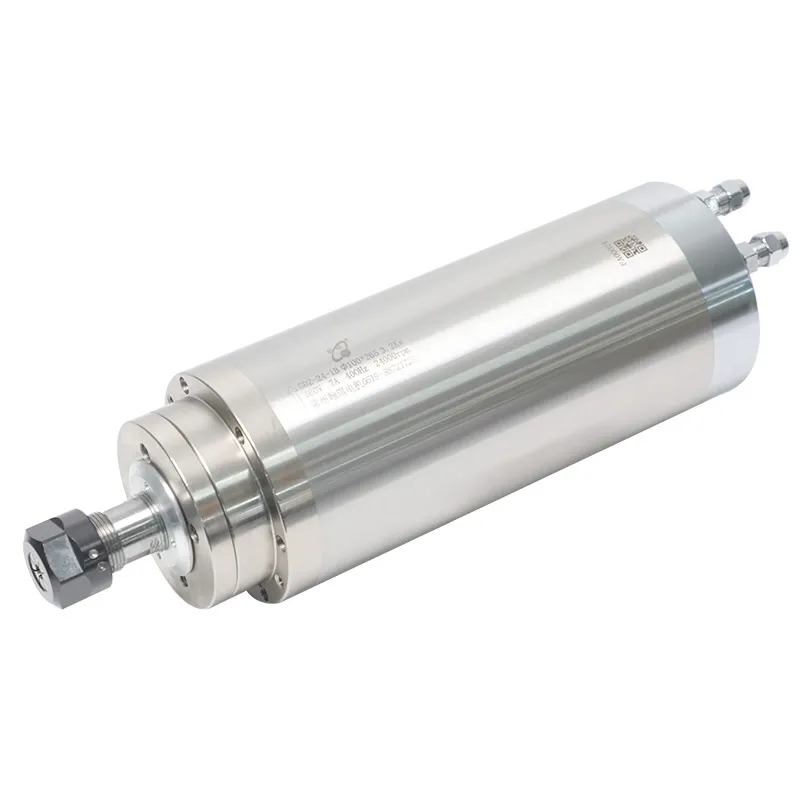
Materials Used in Medical CNC Machining
Selecting the right materials is critical when it comes to medical CNC machining. These materials need to be biocompatible, durable, and suitable for complex geometries.
Stainless Steel
Stainless steel is commonly used for surgical instruments and medical device components due to its corrosion resistance and strength.
- Application: Scalpels, scissors, and clamps are often made of stainless steel.
- Advantages: It is cost-effective and has excellent durability, which makes it ideal for repeated sterilization.
Titanium
Titanium is another popular material, especially for implants.
- Advantages: Titanium is lightweight, strong, and highly biocompatible. It is often used for orthopedic implants such as hip replacements.
- Challenges: Titanium is difficult to machine due to its hardness. For effective machining, the use of a high-torque spindle like the 7.5KW ER32 Air-Cooled Spindle is recommended.
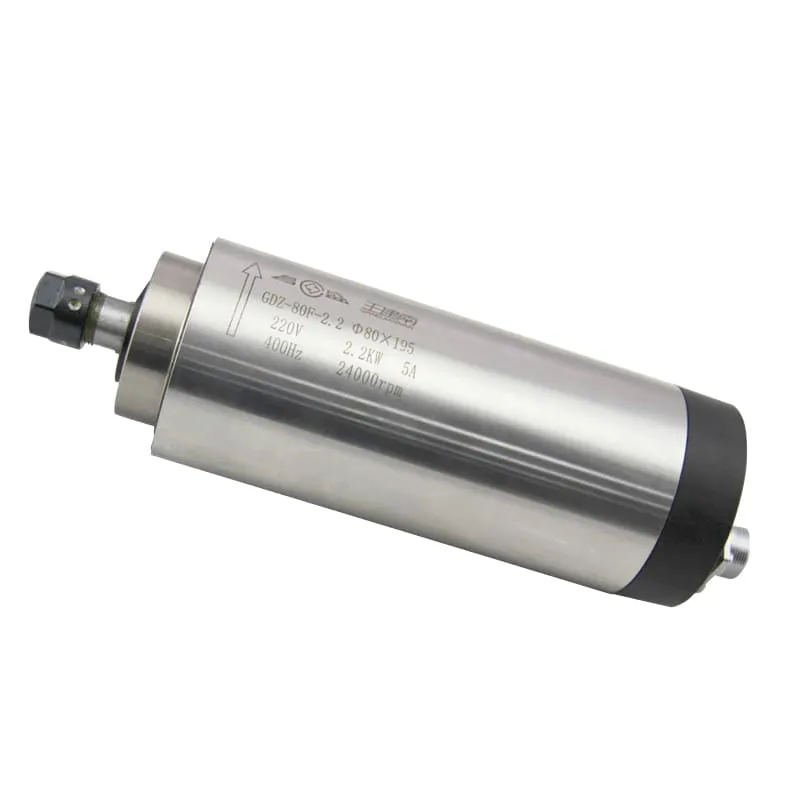
Biocompatible Polymers
Certain polymers, such as PEEK (Polyether ether ketone), are also used in medical CNC machining.
- Application: PEEK is used for dental implants and spinal fusion devices due to its biocompatibility and lightweight nature.
- Machinability: These polymers are relatively easy to machine, making them suitable for rapid prototyping and custom components.
Precision and Tolerances in Medical CNC Machining
In the medical industry, achieving high precision is not just important; it is critical for patient safety and the effectiveness of medical devices.
Tight Tolerances
Medical devices require tight tolerances, often within micrometers. For instance, surgical tools must fit precisely with other devices to function effectively. CNC machines can easily achieve such tolerances through precision programming and careful calibration.
- G-Code Optimization: Programming tools such as Fusion 360 or Mastercam can help optimize G-code to ensure tight tolerance.
- Tool Calibration: Regular calibration and use of tool length compensation ensure that each cut meets exacting standards.
Quality Assurance
Quality assurance is vital in medical device manufacturing. Many manufacturers adopt in-line inspection systems during CNC machining to verify each component meets specifications.
- Metrology Tools: CMM (Coordinate Measuring Machines) are used to measure parts, ensuring they comply with tolerances.
- Surface Finish: The surface finish is critical for implants and surgical tools. A smooth, defect-free finish minimizes infection risks when used in surgical procedures.
Advantages of CNC Machining for Medical Devices
High Repeatability
High repeatability is one of the significant advantages of using CNC machines for medical device manufacturing. Once a design is programmed, CNC machines can replicate the part as many times as required without deviation.
- Mass Production: CNC machining is ideal for producing thousands of parts, each with consistent quality.
- Minimal Errors: The risk of human error is greatly reduced, which is crucial for components used in life-critical situations.
Customization
Customization is increasingly in demand in the medical industry. Patients often require personalized implants or devices that are custom-fitted to their bodies.
- CAD/CAM Integration: CNC machines can use data from scans and CAD models to create parts that are tailored to an individual patient’s requirements.
- Rapid Prototyping: CNC machining also allows for rapid prototyping of new medical tools and devices, enabling quicker innovation in the healthcare industry.
Shorter Lead Times
Compared to traditional manufacturing methods, CNC machining offers shorter lead times, which is vital when producing medical equipment needed on an urgent basis, such as during a pandemic or other medical emergencies.
Challenges of CNC Machining in the Medical Industry
While CNC machining is immensely beneficial, there are several challenges to consider when using it for medical device production.
Regulatory Compliance
The medical industry is highly regulated, with stringent standards to ensure patient safety.
- FDA Requirements: Medical devices must meet FDA and ISO 13485 standards, which necessitate meticulous documentation and quality assurance.
- Quality Management: CNC machine shops need to implement robust quality management systems (QMS) to ensure every part produced is consistent and compliant.
Cost Concerns
Producing medical devices with CNC machining can be costly, especially when working with high-grade materials like titanium.
- Material Costs: Titanium and other biocompatible materials are expensive, adding to the overall production costs.
- Tool Wear: Materials like titanium are also hard on tooling, leading to frequent replacements, which can be costly over time.
For a balance between quality and cost, using an appropriate spindle such as the 2.2KW ER20 Air-Cooled Spindle can optimize the efficiency of the machining process. 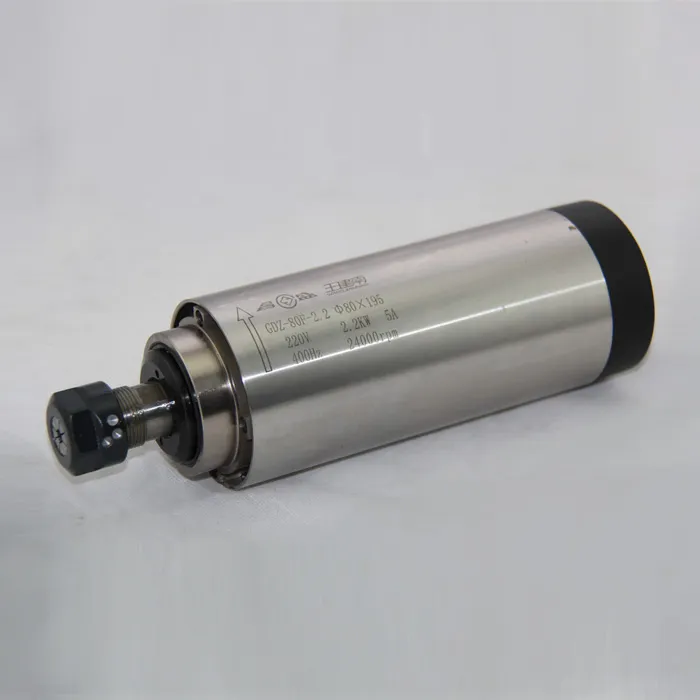
CNC Medical Machining and Its Future
The use of CNC in the medical industry is only set to increase. Innovations in CAD/CAM software, multi-axis machining, and new materials will expand the capabilities of CNC medical machining even further.
Emerging Trends
- 5-Axis CNC Machines: The adoption of 5-axis CNC machines will allow even more complex geometries to be machined in a single setup, reducing lead times and enhancing precision.
- Hybrid Manufacturing: Combining CNC machining with 3D printing can lead to new opportunities for medical device production. For example, the base of a medical tool could be CNC machined, with finer, intricate details added through additive manufacturing.
FAQs
1. What types of medical devices are produced using CNC machining?
CNC machining is used to manufacture implants, surgical instruments, and medical device components that require high precision and durability.
2. Why is CNC machining preferred for making surgical tools?
CNC machining ensures precision and repeatability, which are critical for surgical tools to function effectively and safely.
3. Can CNC machines produce patient-specific implants?
Yes, CNC machining can produce custom implants tailored to a patient’s unique anatomy using data from CAD models and medical scans.
4. What materials are typically used in CNC medical machining?
Materials like stainless steel, titanium, and biocompatible polymers such as PEEK are commonly used due to their strength, durability, and biocompatibility.
5. Is CNC medical machining cost-effective?
While CNC machining can be costly due to material expenses and regulatory compliance, its precision and ability to create complex, customized parts make it highly valuable in the medical field.
Conclusion
CNC medical machining has revolutionized the healthcare sector, providing the tools and devices necessary for advanced medical procedures. With its unmatched precision, versatility, and ability to meet the rigorous demands of medical standards, CNC machining is a cornerstone in the production of implants, surgical instruments, and medical components. As technology advances, the role of CNC in the medical industry will only continue to grow, supporting the development of more customized, efficient, and reliable medical solutions. To ensure you have the best tools for precision machining, explore the high-quality spindle motors available at spindlemotorshop.com. Whether for small-scale operations or more complex projects, CNC medical machining provides endless opportunities to enhance patient care and medical innovation.

